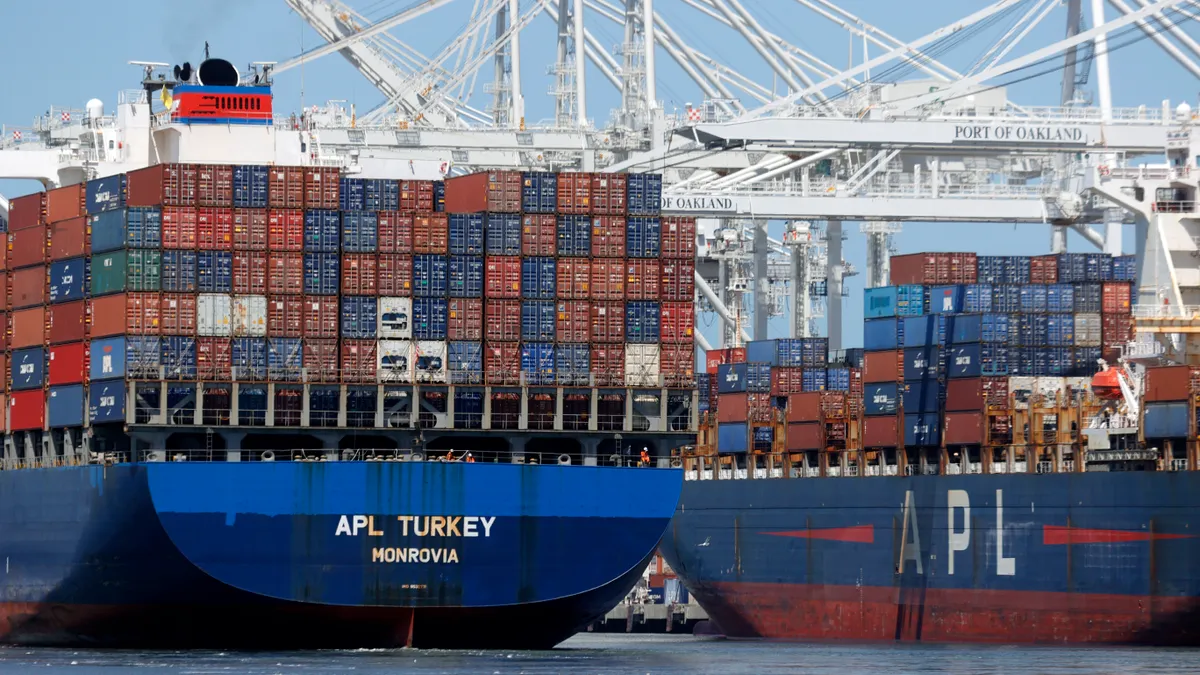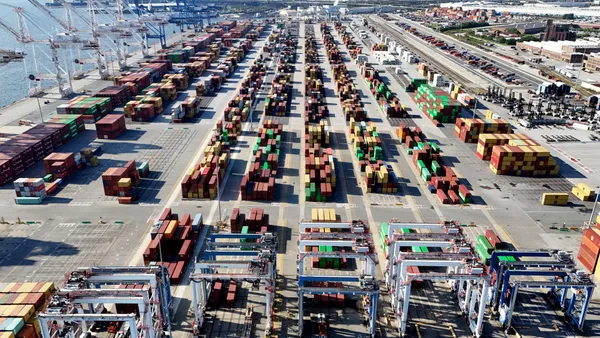Dive Brief:
- Global schedule reliability continued to struggle in May as on time dipped to 38.8%, down from 39.1% in April and from 74.8% in May 2020, according to the latest figures from Sea-Intelligence.
- Maersk was the most punctual carrier for the month, but its 46.2% schedule reliability means a shipper is more likely to correctly guess a coin flip than have their ship show up on time. Evergreen had the lowest schedule reliability at 25.1%, Sea-Intelligence's figures show.
- Schedule reliability on the Transatlantic east-bound trade from Asia to the North American West Coast improved two percentage points to reach a two-month rolling average of 23.7% during April and May.
Dive Insight:
The latest figures on schedule reliability don't paint the most optimistic picture for an ocean freight market that has struggled under the weight of increased demand and tight capacity for months.
Not only are ships struggling to keep schedules, but they're also showing up later. The average delay for late vessels in May was 5.86 days, which is down from the February peak of 6.96 days but still higher than most of 2020.
The carriers say the issue is congestion.
"If we look at [the] situation around the market, then the theme remains congestion," Hapag-Lloyd CEO Rolf Jansen said on a press call earlier this month. "Unfortunately, we still see significant congestion in many places around the world."
Jansen said the peak season ahead of the holidays would need to be fairly mild in order for the industry to catch up. But that's not what they expect to happen, he said.
The latest Global Port Tracker forecast from the National Retail Federation shows imports into the U.S. increasing on a YoY level through September.
"There’s no shortage of demand from consumers, but there continue to be shortages of labor, equipment and shipping capacity to meet that demand," NRF Vice President for Supply Chain and Customs Policy Jonathan Gold said in a statement earlier this month. "Supply chain disruptions, port congestion and rising shipping costs could continue to be challenges through the end of the year."
And the issues at the Yantian gateway earlier this month are expected to lead to more delays in the system for up to a month.
Bjørn Vang Jensen, VP of advisory services for Sea-Intelligence referred to the current market as the "stress test from hell" in a recent opinion piece, pointing out that ocean shipping has become increasingly expensive for shippers due to high demand.
If "demand patterns and volumes don’t shift, and there’s a chance they won’t, then shipping capacity could remain dried up for up to 3 years (the time it takes to build a fleet of new ships for a string), and freight rates more than likely remain sky-high," Jensen wrote.
Hapag-Lloyd's Jansen said he expects high demand during peak to extend the holiday shipping season.
"You'll probably see people that will start to ship early," he said. "I also think that it could last a little bit longer than you normally see."














